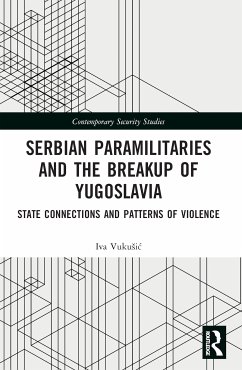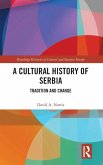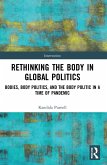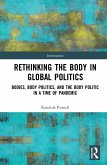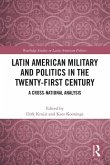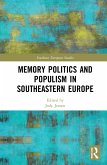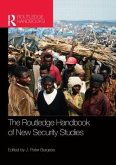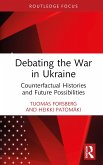This is the first book to offer a comprehensive analysis of the emergence, nature, and function of Serbian paramilitary units during the violent breakup of Yugoslavia.
The book investigates the nature and functions of paramilitary units throughout the 1990s, and their ties to the state and President Slobodan Milosevic. The work relies on the archives of the International Criminal Tribunal for the former Yugoslavia in The Hague, which conducted dozens of trials relating to paramilitary violence, and records from judicial proceedings in the region. It discusses how and why certain important paramilitary units emerged, how they functioned and transformed through the decade, what their relationships and entanglements were with the state, the Milosevic regime, and organized crime. The study thus investigates the interrelated ideological, political, and social factors and processes, fueling paramilitary engagement, and assesses the impact of this engagement on victims of paramilitary violence and on the state and society for which the units purportedly fought. It argues that coordinated action by a number of state institutions gave rise to paramilitaries tasked with altering borders while maintaining plausible deniability for the sponsoring regime. The outsourcing of violence by the state to paramilitaries led to a significant weakening of the very state these units and their sponsors swore to protect. The book also analyzes differences between the units and how they attacked civilians, arguing that the different forms of violence stemmed not only from the function they fulfilled for the state but also the ways in which they were set up and operated. The final chapter brings the different strands of the argument together into a coherent whole, suggesting avenues for further research, in the former Yugoslavia and beyond.
This book will be of much interest to students of ethnic conflict and civil war, war crimes, Balkan politics, and International Relations in general.
The book investigates the nature and functions of paramilitary units throughout the 1990s, and their ties to the state and President Slobodan Milosevic. The work relies on the archives of the International Criminal Tribunal for the former Yugoslavia in The Hague, which conducted dozens of trials relating to paramilitary violence, and records from judicial proceedings in the region. It discusses how and why certain important paramilitary units emerged, how they functioned and transformed through the decade, what their relationships and entanglements were with the state, the Milosevic regime, and organized crime. The study thus investigates the interrelated ideological, political, and social factors and processes, fueling paramilitary engagement, and assesses the impact of this engagement on victims of paramilitary violence and on the state and society for which the units purportedly fought. It argues that coordinated action by a number of state institutions gave rise to paramilitaries tasked with altering borders while maintaining plausible deniability for the sponsoring regime. The outsourcing of violence by the state to paramilitaries led to a significant weakening of the very state these units and their sponsors swore to protect. The book also analyzes differences between the units and how they attacked civilians, arguing that the different forms of violence stemmed not only from the function they fulfilled for the state but also the ways in which they were set up and operated. The final chapter brings the different strands of the argument together into a coherent whole, suggesting avenues for further research, in the former Yugoslavia and beyond.
This book will be of much interest to students of ethnic conflict and civil war, war crimes, Balkan politics, and International Relations in general.
'This book represents a major contribution as it offers an in-depth analysis of the role Serbian paramilitaries have played in these violent conflicts. Iva Vukusic's excellent book is a first systematic and comprehensive study of paramilitary formations responsible for unprecedented human rights violations in the Yugoslav wars of succession. Drawing on the primary sources from several archives, including the ICTY documentation, Vukusic shows convincingly how the paramilitary organisations were created, cultivated, and regularly employed by the Serbian state apparatus in their project of violent ethnic engineering of former Yugoslavia. This is a superb book that will influence future debates on' paramilitarism.'
Sinisa Malesevic, University College, Dublin, Ireland
'Intricate and compelling, this book brings together an enormous quantity of source material. Iva Vukusic is unfailingly compassionate, engaged, relevant and knowledgeable. Her book should be read by all scholars of war crimes, genocide, and contemporary history.'
Cathie Carmichael, University of East Anglia, UK
'Exemplary, tedious detective work - this is how research should be. Iva Vukusic's study provides many new insights into the role and significance of paramilitary units in the Yugoslav Wars of Disintegration. The book also shows that robbing, raping, and killing remain largely unpunished. This is bad news for the years filled with violence we have in front of us.'
Christian Gudehus, Ruhr-Universität Bochum (RUB), Germany
'Dr Iva Vukusic, has produced a work of great significance in the history of the former Yugoslavia and its demise in her study of paramilitary groups. At the same time, her book has much to offer criminologists working in both the field of atrocity crimes, and on the relationship between conflict and organized criminality.'
Andy Aydin-Aitchison, The British Journal of Criminology, 2023, XX, 1-3
'..an excellent description of the emergence of Serbian paramilitarism and its atrocious wartime record, but also an impressive overview of its transformations and corrosive and lasting effects on postwar Serbia, too. In this respect, Vukusic's book is certainly indispensable for studying the Yugoslav conflict and beyond.'
Vladimir Petrovic, Comparative Southeast European Studies, Vol. 71, Issue 3
'The book should serve as a much-needed guide to paramilitary violence in the former Yugoslavia for researchers, students, and policymakers alike. The refreshingly accessible manner of Vukusic's writing renders the unappetizingly dense information of the ICTY records easily digestible for researchers and students of diverse backgrounds and knowledge levels. Serbian Paramilitaries will shape future understandings of paramilitary units as an ecology whose possible strata were first mapped out in Vukusic's book.'
Georgio Konstandi, University College London, H-Genocide, February, 2024
''Due to the objective interpretation of reliable sources, the book will be indispensable literature to all researchers of the violent breakup of Yugoslavia, regardless of ethnic, ideological, religious, or political positions.'
Vladan Jovanovic, Institute for Recent History of Serbia, Belgrade, in Southeastern Europe 48 (2024)
'Serbian Paramilitaries and the Breakup of Yugoslavia offers an exceptionally detailed and methodologically sophisticated account of paramilitary violence. Not just a historically rich text on former Yugoslavia, its approach offers valuable methodological and conceptual insights for the study of participation in mass violence, as well as post-conflict demobilisation'.
Leah Owen, Swansea University, in Global Responsibility to Protect (2024)
Sinisa Malesevic, University College, Dublin, Ireland
'Intricate and compelling, this book brings together an enormous quantity of source material. Iva Vukusic is unfailingly compassionate, engaged, relevant and knowledgeable. Her book should be read by all scholars of war crimes, genocide, and contemporary history.'
Cathie Carmichael, University of East Anglia, UK
'Exemplary, tedious detective work - this is how research should be. Iva Vukusic's study provides many new insights into the role and significance of paramilitary units in the Yugoslav Wars of Disintegration. The book also shows that robbing, raping, and killing remain largely unpunished. This is bad news for the years filled with violence we have in front of us.'
Christian Gudehus, Ruhr-Universität Bochum (RUB), Germany
'Dr Iva Vukusic, has produced a work of great significance in the history of the former Yugoslavia and its demise in her study of paramilitary groups. At the same time, her book has much to offer criminologists working in both the field of atrocity crimes, and on the relationship between conflict and organized criminality.'
Andy Aydin-Aitchison, The British Journal of Criminology, 2023, XX, 1-3
'..an excellent description of the emergence of Serbian paramilitarism and its atrocious wartime record, but also an impressive overview of its transformations and corrosive and lasting effects on postwar Serbia, too. In this respect, Vukusic's book is certainly indispensable for studying the Yugoslav conflict and beyond.'
Vladimir Petrovic, Comparative Southeast European Studies, Vol. 71, Issue 3
'The book should serve as a much-needed guide to paramilitary violence in the former Yugoslavia for researchers, students, and policymakers alike. The refreshingly accessible manner of Vukusic's writing renders the unappetizingly dense information of the ICTY records easily digestible for researchers and students of diverse backgrounds and knowledge levels. Serbian Paramilitaries will shape future understandings of paramilitary units as an ecology whose possible strata were first mapped out in Vukusic's book.'
Georgio Konstandi, University College London, H-Genocide, February, 2024
''Due to the objective interpretation of reliable sources, the book will be indispensable literature to all researchers of the violent breakup of Yugoslavia, regardless of ethnic, ideological, religious, or political positions.'
Vladan Jovanovic, Institute for Recent History of Serbia, Belgrade, in Southeastern Europe 48 (2024)
'Serbian Paramilitaries and the Breakup of Yugoslavia offers an exceptionally detailed and methodologically sophisticated account of paramilitary violence. Not just a historically rich text on former Yugoslavia, its approach offers valuable methodological and conceptual insights for the study of participation in mass violence, as well as post-conflict demobilisation'.
Leah Owen, Swansea University, in Global Responsibility to Protect (2024)

